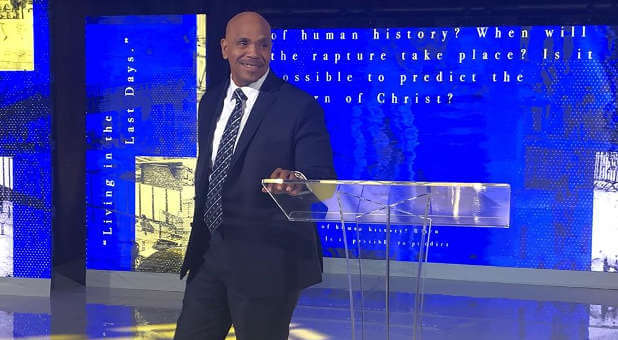On New Year’s Eve 2019, as has happened in churches every year on that day since churches have existed, preachers stood in pulpits around the world and “prophesied” the same word they “prophesied” nearly every single previous year: “The worst is over and the best is yet to come.” Pastors instructed their congregations to wave goodbye to 2019—again, as they do every year—and all the hell that came with it, and welcome the new year, which they said would be the greatest year of their entire lives. In only a few short months, reality made a liar of those well-intentioned pastors and ushered in one of the worst years in the history of the modern world.
We live in critical, pivotal times, the likes of which we haven’t seen before. Almost overnight, people went from an economic boom to record unemployment and an economic collapse caused by a microscopic virus that became a global pandemic. Restaurants, stores and businesses closed. American employees were either sent home to work from home, furloughed temporarily or laid off together. Almost overnight, the lowest unemployment in a half-century climbed to 40 million Americans unemployed. Concerts were canceled; movie theaters went dark; baseball parks, basketball arenas and football stadiums were empty; and even the lights went out on Broadway. And if that weren’t enough, to date more than 194,000 Americans have died from a novel coronavirus called COVID-19. We are living in “the new abnormal.”
On top of all that, while we have been stuck at home, we have also witnessed an unconscionable outbreak of racial violence, which has sparked protests, riots, destruction, cities set afire and even more shootings. It seems to have perpetuated itself into a vicious, violent cycle that shows no sign of letting up anytime soon.
In times past, any time tragedies and crises have struck this country, any time fear and despair have gripped this country, people have collectively looked to God for answers. Even those who don’t go to church on Easter found themselves in church again at least a little while, until a return to normal sets in again. However, the places we traditionally turn to for hope, comfort, camaraderie and answers are also closed. Though some churches have chosen to ignore city, state and national mandates preventing large gatherings, the fact remains that most are still closed, with primarily larger churches having services online via livestreaming. While many large churches were well equipped and had been livestreaming services for years, many smaller churches had never taken advantage of the technology and were left behind. For thousands of congregations across America, the work of the enemy silenced the church and left millions of Christians feeling hopeless, isolated and alone.
But God! Those two words reverberate throughout history like powerful twins, subtly altering every tragedy, not only throughout history but also in our own personal lives.
But God! Without the distractions of work, school and extracurricular activities, many couples and families who have been forced to stay home have gotten to know one other as never before—some for the first time. Some, in their search to understand what God is doing, have spoken out in judgmental tones. They say that because people worship sports, God shut down our stadiums; because people worship entertainment, God shut down our theaters and arenas; because people worship Hollywood, God shut down our movie theaters; and because people worship money, God disrupted our economic systems. But suppose it were God Himself who shut down our churches, because so many Christians could not see Him beyond the religious activity of the church? Just as many husbands and wives were forced to get to know each other without distractions, so, too, must Christians discover God for themselves without the safety net of corporate services.
While we mourn those who have died, we do not grieve as those who have no hope. We will miss them, but we also rejoice with them that they are in the land of the living, while we remain in the land of the dying. Don’t ask why those who have died were taken. Ask, rather, why we were left behind, what that means and what we still have to accomplish.
Bishop George Bloomer is a bestselling author, pastor, speaker and entrepreneur. He founded and serves as pastor at Bethel Family Worship Center in Durham, North Carolina. He also founded G.G. Bloomer Ministries, from which he speaks internationally.
This article was excerpted from the August issue of Charisma magazine. If you don’t subscribe to Charisma, click here to get every issue delivered to your mailbox. During this time of change, your subscription is a vote of confidence for the kind of Spirit-filled content we offer. In the same way you would support a ministry with a donation, subscribing is your way to support Charisma. Also, we encourage you to give gift subscriptions at shop.charismamag.com, and share our articles on social media.














































